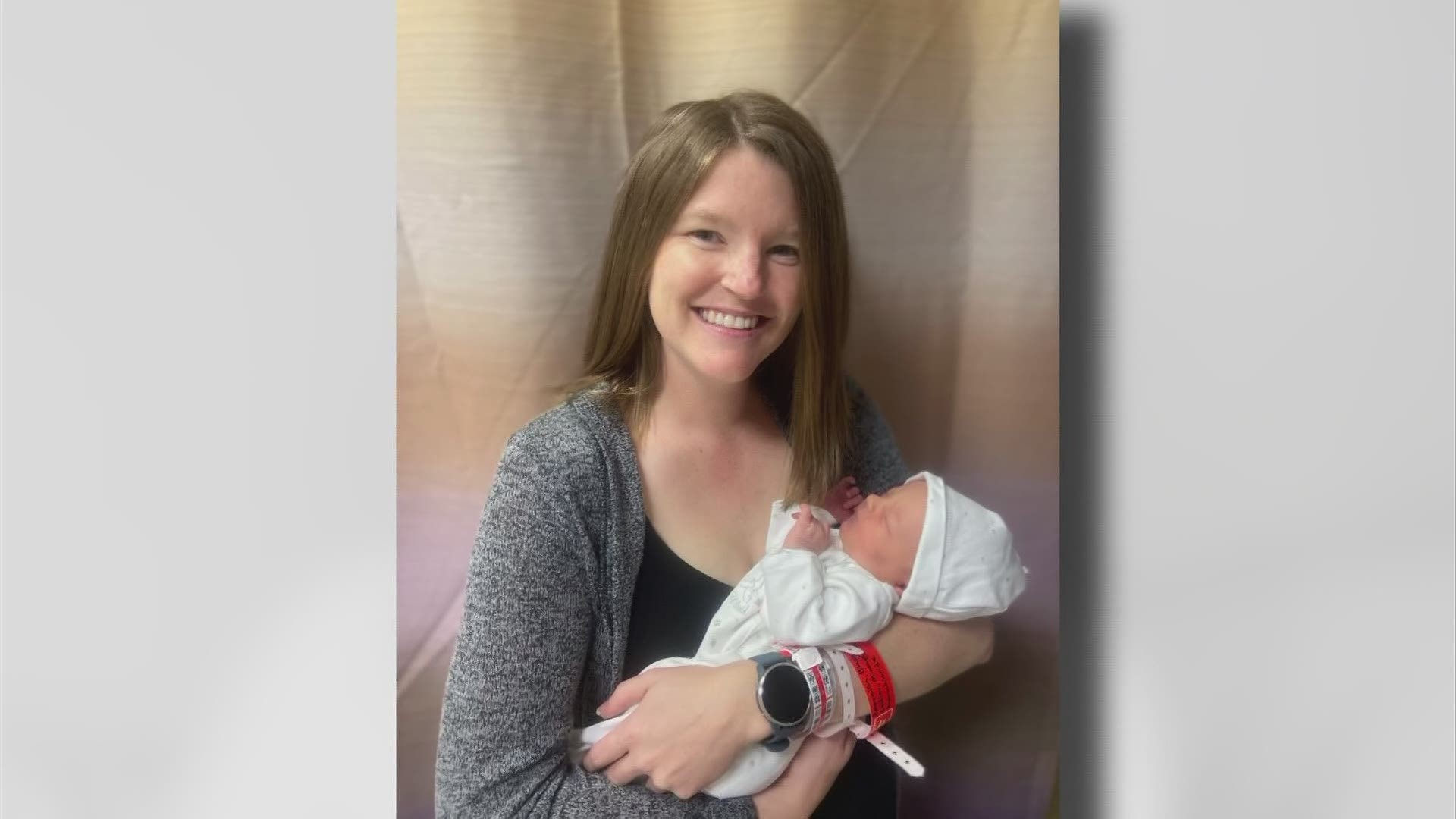A Central Ohio woman who received the COVID vaccine while pregnant wants you to know she and her baby are doing great.
“She is a happy, healthy baby,” said mother, Mary-Kate. “She is growing just like she’s supposed to be.”
Addison is almost 3 months old. Her mother did not want to share her last name for fear of those who side with anti-vaccination who might want to contact her. What she is sharing, is her story.
“Every single day I had to be vigilant because if I didn’t look out for my health, who was going to?,” she said.
Originally from central Ohio, Mary-Kate attended Ohio State University. She’s now a sonographer in Florida where she sees 10-to-15 patients a day doing ultrasounds. Mary-Kate had just come back to work from maternity leave when the pandemic started. In May of last year, she was pregnant with Addison. She wore masks, but her profession left little-to-no room for social distancing.
When vaccinations came around, Mary-Kate says she heard all the questions.
“’Why would you do this?,’ ‘Why in the world would a pregnant mom so close to delivery get the vaccine?’,” Mary-Kate said.
In early January, little was known on the subject mostly because pregnant women had been excluded from initial COVID vaccine trials. Knowing, though, vaccinations like Tdap and flu can transfer antibodies to unborn babies, Mary-Kate, at 36 weeks pregnant, got her first round of the Moderna vaccine. Three weeks later, Addison was born. Days after her birth, Addison’s blood was tested.
“Yeah, so she was the first in the world,” Mary-Kate said.
Addison became the first known case in the world where COVID vaccine antibodies had been passed on while in the womb. As more studies come out, Mary-Kate says the biggest obstacle to get expecting mothers vaccinated is misinformation.
“You have constant word-of-mouth and then you have constant misinformation and the misinformation doesn’t get deleted,” she said. “It doesn’t go anywhere.”
In a Harvard study published last month, 60 percent of expecting mothers polled in India, the Philippines and Latin America were in favor of getting the vaccine. In the United States, that number was lower than 45 percent.
Mary-Kate believes that’s due to uncertainty, which is why she’s talking.
“This was my best option and the best option for [Addison],” she said. “So, I didn’t even really think twice. The second I knew I could schedule a vaccine and get it is when I did.”
The study Addison was involved in determined potential protection and infection risk reduction concerning COVID with maternal vaccination. Mary-Kate hopes it gives expecting mothers a little peace of mind to get the vaccination for them and their unborn baby.
“A couple hours or days of side effects from a vaccine, if any, I think is definitely worth it than getting COVID during your pregnancy,” Mary-Kate said.
If you are a soon-to-be mom with questions, the CDC recommends talking to a live expert by clicking here.

